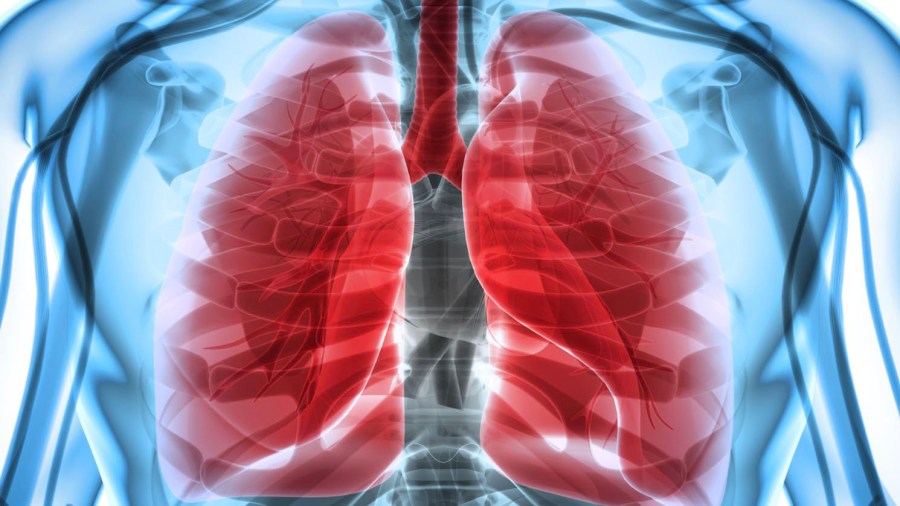Why Are People Who Have Has Squamous Cell Likely to Get It Again in the Same Spot

The full general term "lung cancer" really covers a few very different versions of the illness. Lung cancer has 2 broad types: pocket-size cell lung cancer and non-modest prison cell lung cancer. Non-pocket-size lung cancer is a general classification for other subtypes of lung cancer, including adenocarcinoma, squamous jail cell carcinoma and large cell carcinoma.
A lung cancer diagnosis is complicated and serves every bit the commencement critical step in pinpointing the recommended course of handling. Small-scale cell lung cancer and non-minor cell lung cancer take very different handling plans. However, the different subtypes of non-small cell lung cancer, such as squamous jail cell carcinoma, frequently have a like prognosis and answer to similar treatments. Gathering information about this type of lung cancer and the almost successful treatment options for information technology is vital to achieving the all-time outcome.
As indicated past the proper noun, squamous prison cell carcinomas start to grow in squamous cells throughout the torso. These sparse, flat cells line the surface of the skin as well equally diverse organs, including those in the respiratory and digestive systems. Squamous cell lung cancer begins in the tissues that line the air passages of the lungs. This blazon of cancer in the lungs tends to exist centrally located forth the bronchi that connect the trachea to the lungs. About eighty% to 85% of lung cancers are non-small cell cancers, and nearly 30% of those cancers are squamous prison cell carcinomas.
Symptoms of Squamous Cell Lung Carcinoma
In its earliest stages, squamous cell lung carcinoma ofttimes doesn't cause whatsoever obvious symptoms. Adding to the claiming, many of the symptoms that do gradually appear, such as fatigue and wheezing, are often attributed to other illnesses or conditions. Although lung cancer may not be the cause, you should talk to your physician if you experience frequent infections of the respiratory tract, a nagging coughing that doesn't become away or claret in your sputum. Shortness of breath, unexplained weight loss and hurting in your upper back, breast or shoulder when breathing are as well possible symptoms that should be investigated.
Some lung cancer tumors secrete hormones that crusade paraneoplastic syndromes to develop. This is more common with small cell lung cancer, but it tin can besides happen with non-small prison cell cancers similar squamous cell lung cancer. Depending on the verbal syndrome, paraneoplastic syndromes cause many different kinds of symptoms that appear to exist related to other organs but are more noticeable in general. Examples include muscle weakness, vomiting, breadbasket cramps and dizziness.
Because squamous cell lung cancer affects the larger airways in the lungs, it often causes symptoms earlier than other lung cancers. This tin assistance patients and doctors observe the cancer at an before phase, but a high number of lung cancer cases still aren't diagnosed until after the cancer has spread to the lymph nodes or other organs.
Diagnosing Squamous Cell Lung Cancer
When doctors offset suspect something could be wrong with the lungs, they rely on diverse imaging tests, such as x-rays, MRIs, Cat scans and PET scans, to provide a closer wait at the lungs. Blood piece of work can also exist helpful to rule out other diseases that could be causing symptoms. If anomalies are detected in imaging tests, the definitive diagnosis typically comes after a biopsy is conducted on a tissue sample taken from the lung. Biopsy tests decide if cancer is present and place the type of cancer.
If squamous cell lung cancer is detected, your doctor will perform more tests to determine if the cancer has spread to the lymph nodes or other organs. This information is essential to determining the stage of the cancer and the most successful treatment programme.
Staging of Squamous Cell Lung Cancer
Determining the stage, also known as the progression, of lung cancer is a critical office of developing an effective form of treatment. Non-minor cell lung cancers accept vi master stages: Occult, Phase 0, Stage I, Stage II, Stage III and Stage Four. Additionally, Stages I through 4 accept numerous levels within each stage.
In the simplest of terms, cancer cells are detected in the Occult phase, merely a tumor is too small to exist found. Phase 0 tumors are located on the surface and haven't invaded deeper tissues. Stage I tumors remain contained in i lung, while Phase Two tumors accept spread to the lining of the lungs or lymph nodes most the lung. Stage III tumors take spread to lymph nodes in unlike parts of the trunk or tissues near the lungs. In Stage IV, the cancer has spread to the other lung and metastasized to other organs throughout the torso, such as the basic, liver and encephalon.
Treatment Options for Squamous Prison cell Lung Carcinoma
The treatment of squamous jail cell lung carcinoma is dependent on the stage of the cancer when it's first detected too as the patient'southward overall health and personal preferences. The four primary handling options include surgery, chemotherapy, radiation therapy and targeted therapy. Patients may achieve the best results with a combination of all these therapies, or they may only need one or ii forms of treatment.
Enrolling in a clinical trial for a new treatment is sometimes an option as long every bit your md feels you are a good candidate, but these drug protocols don't all the same accept proven results and tin be risky. The same is true for natural alternative treatments, such as herbal blends and acupuncture. These options should e'er be approved past your md to ensure they don't conflict with whatsoever medically prescribed treatments.
Resources Links:
https://www.cancer.org/cancer/lung-cancer/almost/what-is.html
https://www.cancer.org/cancer/lung-cancer/detection-diagnosis-staging/signs-symptoms.html
https://www.cancer.org/cancer/lung-cancer/detection-diagnosis-staging/how-diagnosed.html
https://www.cancer.org/cancer/lung-cancer/if-you-have-not-small-prison cell-lung-cancer-nsclc.html
https://www.cancer.org/cancer/lung-cancer/detection-diagnosis-staging/staging-nsclc.html
https://www.cancer.org/cancer/lung-cancer/treating-non-small-prison cell/by-stage.html
Source: https://www.symptomfind.com/health/what-is-squamous-cell-lung-cancer?utm_content=params%3Ao%3D740013%26ad%3DdirN%26qo%3DserpIndex
Postar um comentário for "Why Are People Who Have Has Squamous Cell Likely to Get It Again in the Same Spot"